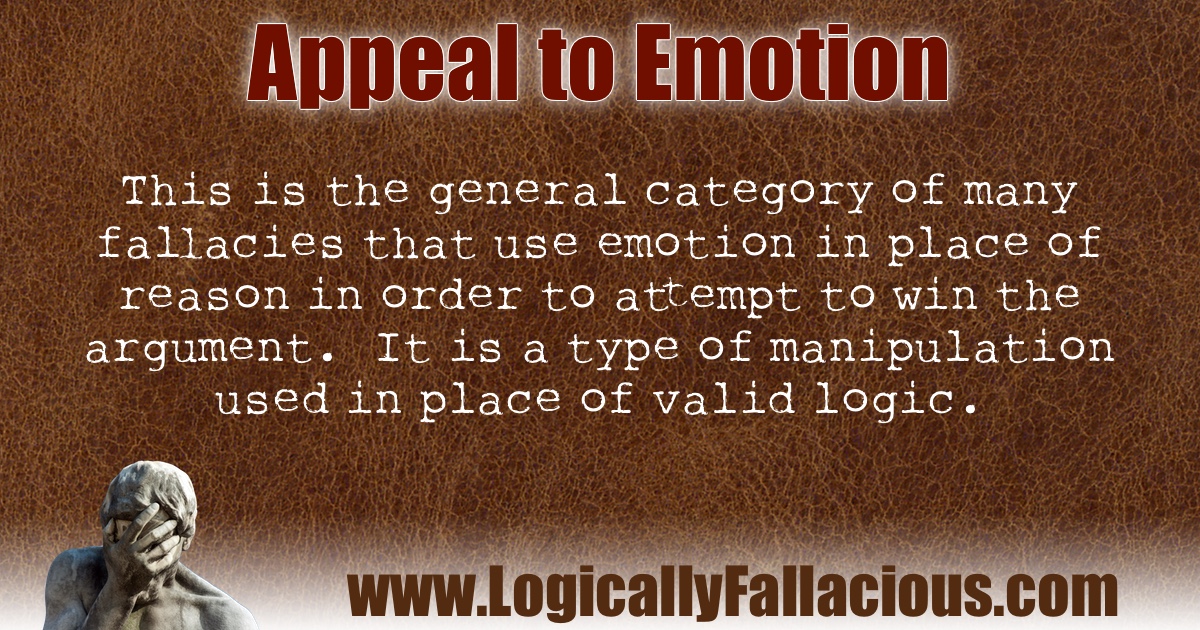(also known as: appeal to pathos, argument by vehemence, playing on emotions, emotional appeal, for the children)
Description: This is the general category of many fallacies that use emotion in place of reason in order to attempt to win the argument. It is a type of manipulation used in place of valid logic.
There are several specifically emotional fallacies that I list separately in this book, because of their widespread use. However, keep in mind that you can take any emotion, precede it with, “appeal to”, and you have created a new fallacy, but by definition, the emotion must be used in place of a valid reason for supporting the conclusion.
Logical Form:
Claim X is made without evidence.
In place of evidence, emotion is used to convince the interlocutor that X is true.
Example #1:
Power lines cause cancer. I met a little boy with cancer who lived just 20 miles from a power line who looked into my eyes and said, in his weak voice, “Please do whatever you can so that other kids won’t have to go through what I am going through.” I urge you to vote for this bill to tear down all power lines and replace them with monkeys on treadmills.
Explanation: Notice the form of the example: assertion, emotional appeal, request for action (conclusion) -- nowhere is there any evidence presented. We can all tear up over the image of a little boy with cancer who is expressing concern for others rather than taking pity on himself, but that has nothing to do with the assertion or the conclusion.
Example #2:
There must be objective rights and wrongs in the universe. If not, how can you possibly say that torturing babies for fun could ever be right?
Explanation: The thought of people torturing babies for fun immediately brings up unpleasant images (in sane people). The actual argument (implied) is that there are objective (universal) rights and wrongs (morality). The argument is worded in such a way to connect the argument's conclusions (that there is objective morality) with the idea that torturing babies for fun is wrong (this is also a non sequitur fallacy). No matter how we personally feel about a horrible act, our feelings are not a valid substitution for an objective reason behind why the act is horrible.
Exceptions: Appealing to emotions is a very powerful and necessary technique in persuasion. We are emotional creatures; therefore, we often make decisions and form beliefs erroneously based on emotions, when reason and logic tell us otherwise. However, using appeals to emotion as a backup to rational and logical arguments is not only valid, but a skill possessed by virtually every great communicator.
Tip: By appealing to both the brain and the heart, you will persuade the greatest number of people.

References:
Brinton, A. (1988). Pathos and the “Appeal to Emotion”: An Aristotelian Analysis. History of Philosophy Quarterly, 5(3), 207–219.